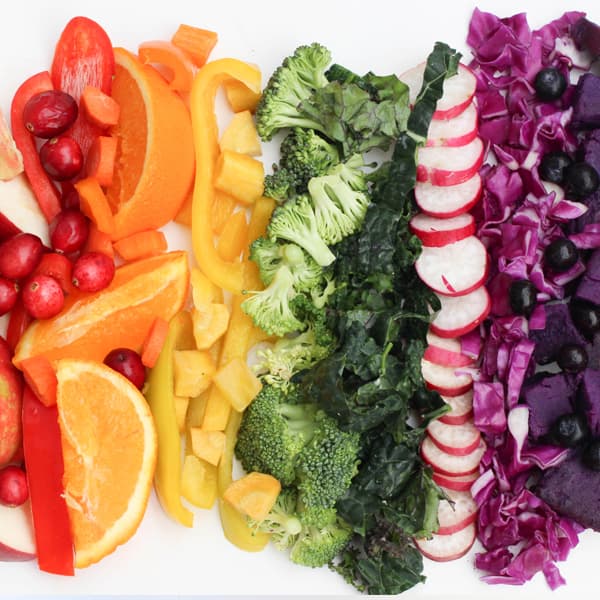
Heme Iron
An important mineral, iron helps maintain blood health. It is a primary component of hemoglobin, a protein in red blood cells that carries oxygen to all parts of the body from the lungs, and part of myoglobin, a protein that transports and stores oxygen in our muscles. Iron is important for childhood brain development and growth, as well as the production and functioning of myriad hormones and cells.
Iron from food comes in two forms: heme and non-heme. Heme iron is found predominantly in blood and muscle, whereas non-heme iron is primarily found in plants, such as whole grains, nuts and seeds, legumes, and leafy greens. We used to think of heme iron as coming exclusively from animal products and non-heme iron as found only in plants, but that isn’t the case. The plant-based Impossible Burger contains heme iron derived from soybean plants, for example, and non-heme iron can be found in meat if the animal had consumed plant foods with non-heme iron.
Similarly, we used to associate heme iron—but not non-heme iron—with greater risk of some cancers, heart disease, and diabetes. But, in many studies with these findings, heme intake may have simply been a marker for meat intake.
We know with certainty, though, that the healthiest sources of iron are whole grains, legumes, nuts, seeds, dried fruits, and green leafy vegetables. We should avoid drinking tea with meals, as that can inhibit iron absorption, whereas consuming vitamin C-rich foods can improve it. The amount of vitamin C in a single orange, for example, can enhance iron absorption as much as three- to sixfold, so those trying to boost their iron absorption should reach for some fruit instead of a cup of tea.
For substantiation of any statements of fact from the peer-reviewed medical literature, please see the associated videos below.
Popular Videos for Heme Iron

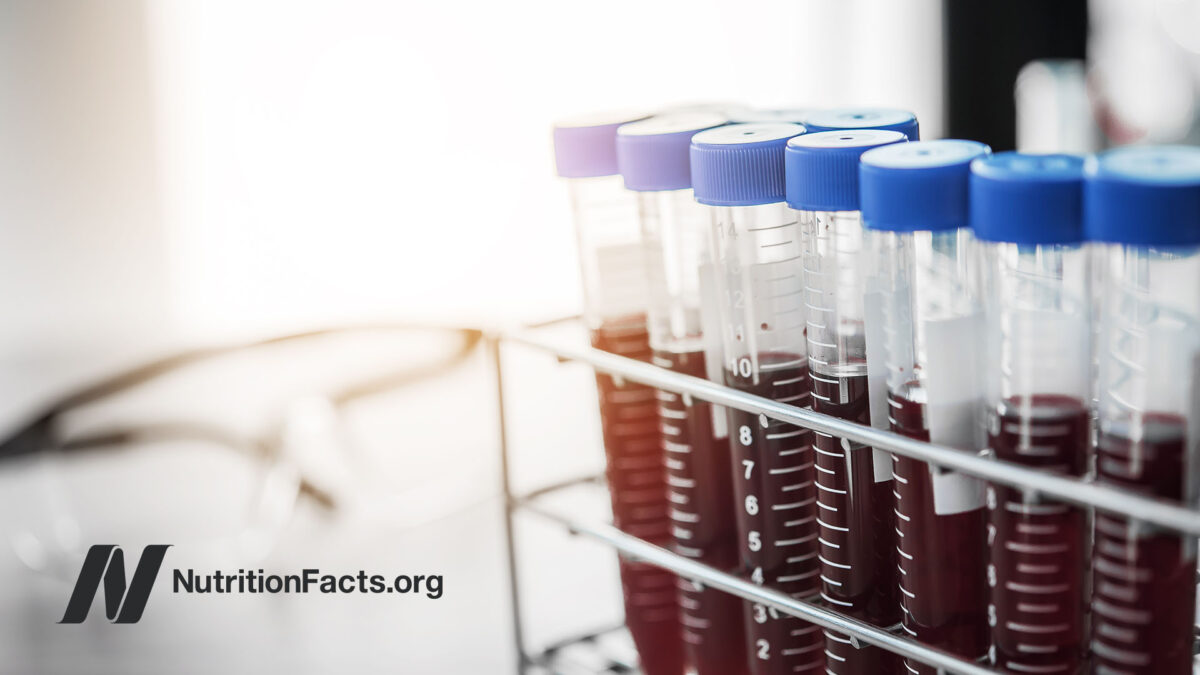
Donating Blood to Prevent Cancer?
Prioritizing plant-based sources of iron may be more effective than giving blood at reducing the...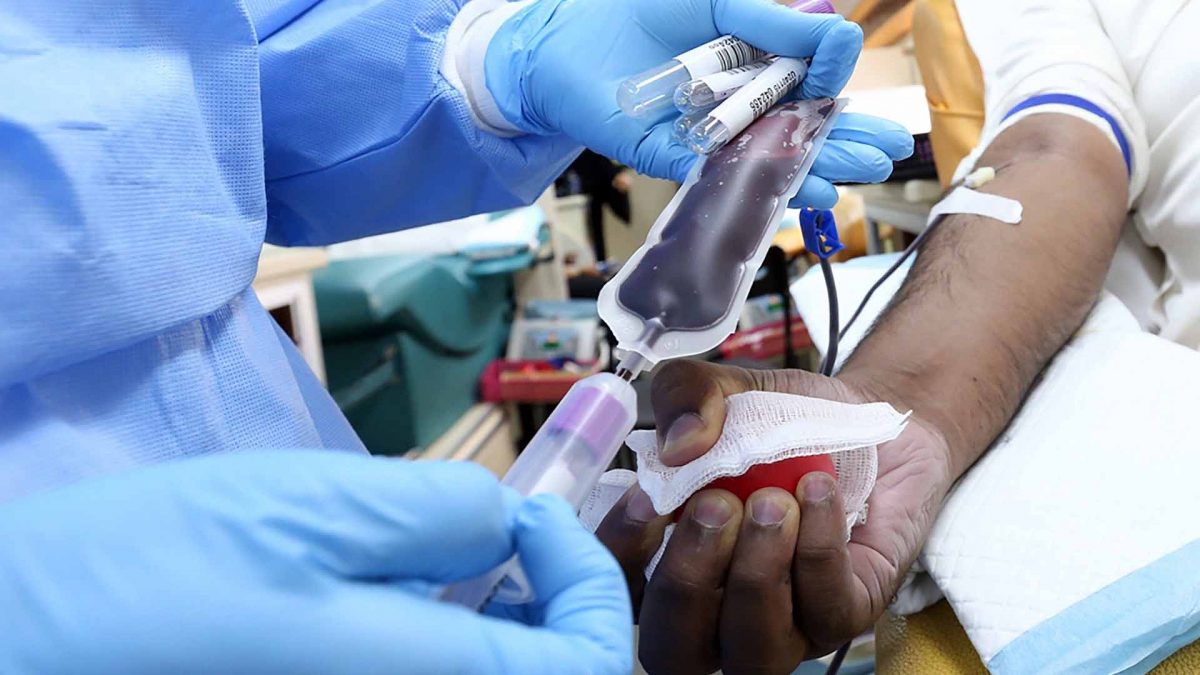
Donating Blood to Prevent Heart Disease?
An extraordinary thing happened when those at high risk for heart disease were randomized to...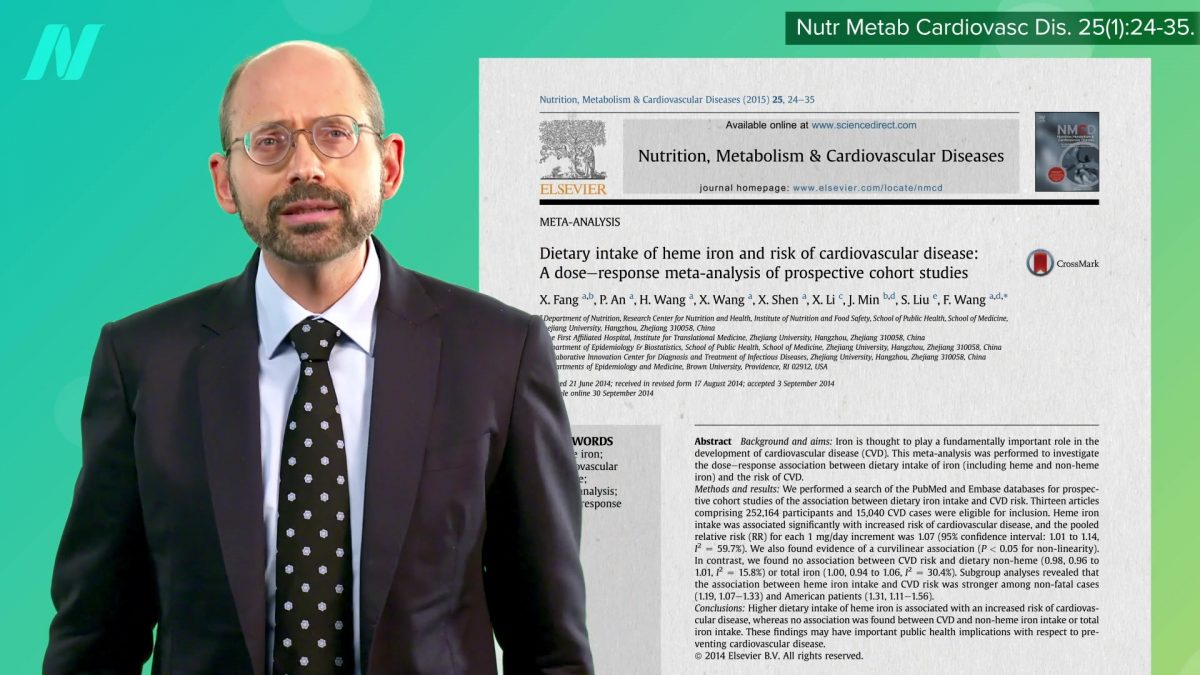
What About the Heme in Impossible Burgers?
Is heme just an innocent bystander in the link between meat intake and breast cancer,...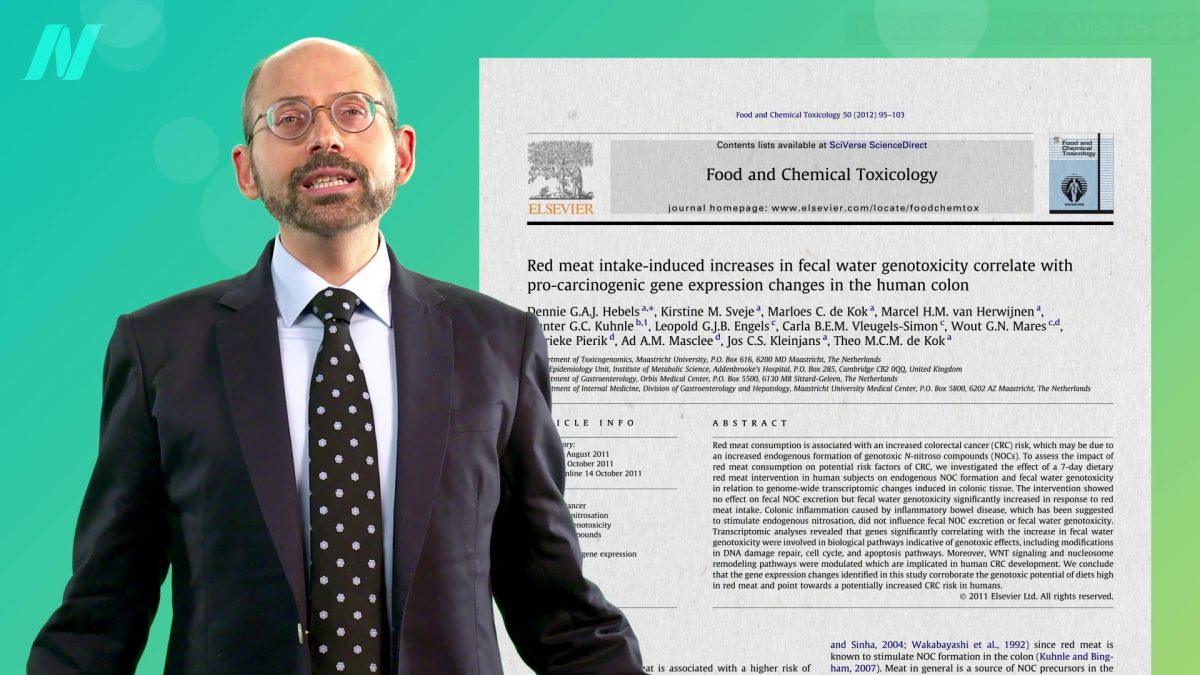
Is Heme Iron the Reason Meat Is Carcinogenic?
Rectal biopsies taken before and after eating meat determine the potentially DNA-damaging dose of heme.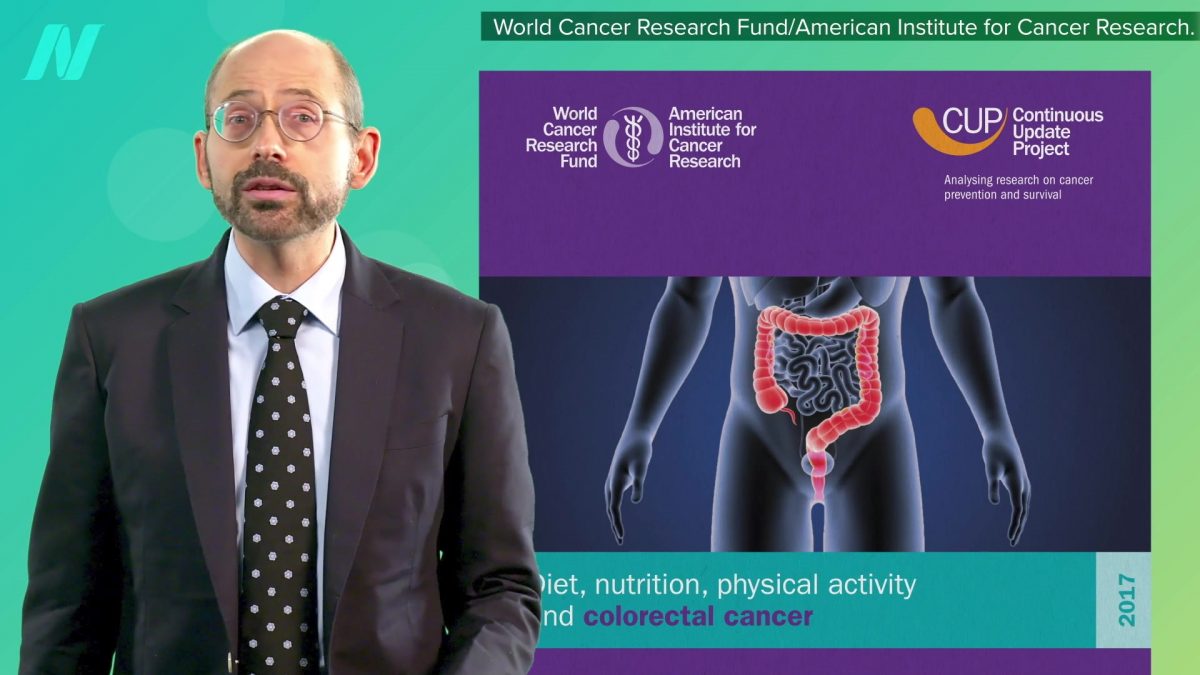
Does Heme Iron Cause Cancer?
Laboratory models suggest that extreme doses of heme iron may be detrimental, but what about...All Videos for Heme Iron
-

Is Heme Iron the Reason Meat Is Carcinogenic?
Rectal biopsies taken before and after eating meat determine the potentially DNA-damaging dose of heme.
-

Heme-Induced N-Nitroso Compounds and Fat Oxidation
What do clinical studies show about the role of heme in the formation of a class of carcinogenic compounds?
-

Does Heme Iron Cause Cancer?
Laboratory models suggest that extreme doses of heme iron may be detrimental, but what about the effects of nutritional doses in humans? A look at heme’s carcinogenic effects.
-

What About the Heme in Impossible Burgers?
Is heme just an innocent bystander in the link between meat intake and breast cancer, diabetes, heart disease, stroke, and high blood pressure?
-

Donating Blood to Prevent Cancer?
Prioritizing plant-based sources of iron may be more effective than giving blood at reducing the risk of potentially “ferrotoxic” (iron-related) diseases such as cancer and diabetes.
-

Donating Blood to Prevent Heart Disease?
An extraordinary thing happened when those at high risk for heart disease were randomized to give blood—and it had nothing to do with their heart.
-

Best Foods to Reduce Stroke Risk
What are the protective components of dietary patterns and foods associated with lower risk of cerebrovascular disease, or stroke?
-

The Role of Poultry Viruses in Human Cancers
Does a cancer-causing herpes virus in chickens pose a public health threat?
-

Why Is Meat a Risk Factor for Diabetes?
Potential culprits include the trans fat in meat, the saturated fat, cholesterol, heme iron, advanced glycation end products (glycotoxins), animal protein (especially leucine), zoonotic viruses, and industrial pollutants that accumulate up the food chain.
-

Food as Medicine: Preventing and Treating the Most Dreaded Diseases with Diet
Dr. Greger has scoured the world’s scholarly literature on clinical nutrition and developed this new presentation based on the latest in cutting edge research exploring the role diet may play in preventing, arresting, and even reversing some of our most feared causes of death and disability.
-

The Safety of Heme vs. Non-Heme Iron
Heme iron, the type found predominantly in blood and muscle, is absorbed better than the non-heme iron that predominates in plants, but may increase the risk of cancer, stroke, heart disease, and metabolic syndrome.
-

Why Was Heart Disease Rare in the Mediterranean?
What was it about the diet on the Greek isle of Crete in the 1950s that made it so healthy?
-

Phytates for the Prevention of Cancer
Phytic acid (phytate), concentrated in food such as beans, whole grains, and nuts, may help explain lower cancer rates among plant-based populations.
-

Risk Associated with Iron Supplements
Iron is a double-edged sword. If we don’t absorb enough, we risk anemia; but if absorb too much, we may increase our risk of cancer, heart disease, and a number of inflammatory conditions. Because the human body has no mechanism to rid itself of excess iron, one should choose plant-based (non-heme) sources, over which our body has some control.
